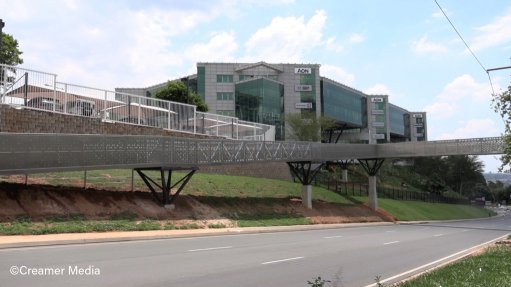Policy uncertainty index moves further into negative territory in the second quarter
The North West University (NWU) Business School’s Policy Uncertainty Index (PUI) moved further into negative territory in the second quarter, rising to 68.3 points, compared with 65.8 in the first quarter.
This is, however, unsurprising given the uncertainty that weighed on business and market sentiment ahead of the national elections.
“The news that emerged subsequently with the formation of a Government of National Unity (GNU) and the pending new Cabinet came too late in the second quarter to positively influence the outcome of the PUI for the quarter,” the business school points out.
Further, the international economic outlook saw the emergence of a mood of cautious optimism about the global economy in the second quarter.
“Although a noticeable undercurrent of uncertainty still persists and growth is weaker than desired, the global economy is stronger as of mid-2024. The US economy continues to perform well.
“Inflation is anticipated to continue to ease in most regions of the world, with implications for the pace at which interest rates may be reduced globally,” the business school notes.
On the other hand, overall geopolitics, domestic politics, debt levels and social polarisation are still seen as potential sources of global economic volatility, it adds.
“Geopolitical tensions especially make assessing the global outlook both more complex and more potentially vulnerable,” it states.
The economic outlook for sub-Saharan Africa is gradually improving, according to the International Monetary Fund, but it has warned that the risks to the regional outlook for various reasons remain tilted to the downside.
GDP growth in sub-Saharan Africa is, nonetheless, forecast to reach 4% in 2025.
South Africa, however, remains among the “laggards” in the current regional growth scenario.
The NWU Business School points out that the South African Reserve Bank Monetary Policy Committee (MPC) kept borrowing costs unchanged in May.
“The subsequent strengthening of the rand and reduced fuel prices in July will improve the inflation outlook and will help to determine the stage at which the MPC will begin to cut interest rates, possibly by September,” it adds.
However, recent high-frequency economic and business data reflected a weak economy over the past few months and business confidence has remained brittle.
“The South African economy is expected to recover in the second half of 2024 as positive factors such as less Eskom loadshedding take hold.
“On present trends, GDP growth is therefore likely to be about 1% or slightly more for 2024 as a whole, compared with 0.6% in 2023,” the business school notes.
Nevertheless, the promise of a GNU Cabinet has created a positive momentum in the country.
“The challenge now is to consolidate a sufficiently powerful guiding and stable GNU that expedites the urgent and necessary economic reforms that the country needs. The more reforms gain momentum, the more policy uncertainty will recede, and investor confidence in South Africa ’s economic prospects will grow,” the business school states.
Article Enquiry
Email Article
Save Article
Feedback
To advertise email advertising@creamermedia.co.za or click here
Comments
Press Office
Announcements
What's On
Subscribe to improve your user experience...
Option 1 (equivalent of R125 a month):
Receive a weekly copy of Creamer Media's Engineering News & Mining Weekly magazine
(print copy for those in South Africa and e-magazine for those outside of South Africa)
Receive daily email newsletters
Access to full search results
Access archive of magazine back copies
Access to Projects in Progress
Access to ONE Research Report of your choice in PDF format
Option 2 (equivalent of R375 a month):
All benefits from Option 1
PLUS
Access to Creamer Media's Research Channel Africa for ALL Research Reports, in PDF format, on various industrial and mining sectors
including Electricity; Water; Energy Transition; Hydrogen; Roads, Rail and Ports; Coal; Gold; Platinum; Battery Metals; etc.
Already a subscriber?
Forgotten your password?
Receive weekly copy of Creamer Media's Engineering News & Mining Weekly magazine (print copy for those in South Africa and e-magazine for those outside of South Africa)
➕
Recieve daily email newsletters
➕
Access to full search results
➕
Access archive of magazine back copies
➕
Access to Projects in Progress
➕
Access to ONE Research Report of your choice in PDF format
RESEARCH CHANNEL AFRICA
R4500 (equivalent of R375 a month)
SUBSCRIBEAll benefits from Option 1
➕
Access to Creamer Media's Research Channel Africa for ALL Research Reports on various industrial and mining sectors, in PDF format, including on:
Electricity
➕
Water
➕
Energy Transition
➕
Hydrogen
➕
Roads, Rail and Ports
➕
Coal
➕
Gold
➕
Platinum
➕
Battery Metals
➕
etc.
Receive all benefits from Option 1 or Option 2 delivered to numerous people at your company
➕
Multiple User names and Passwords for simultaneous log-ins
➕
Intranet integration access to all in your organisation
















